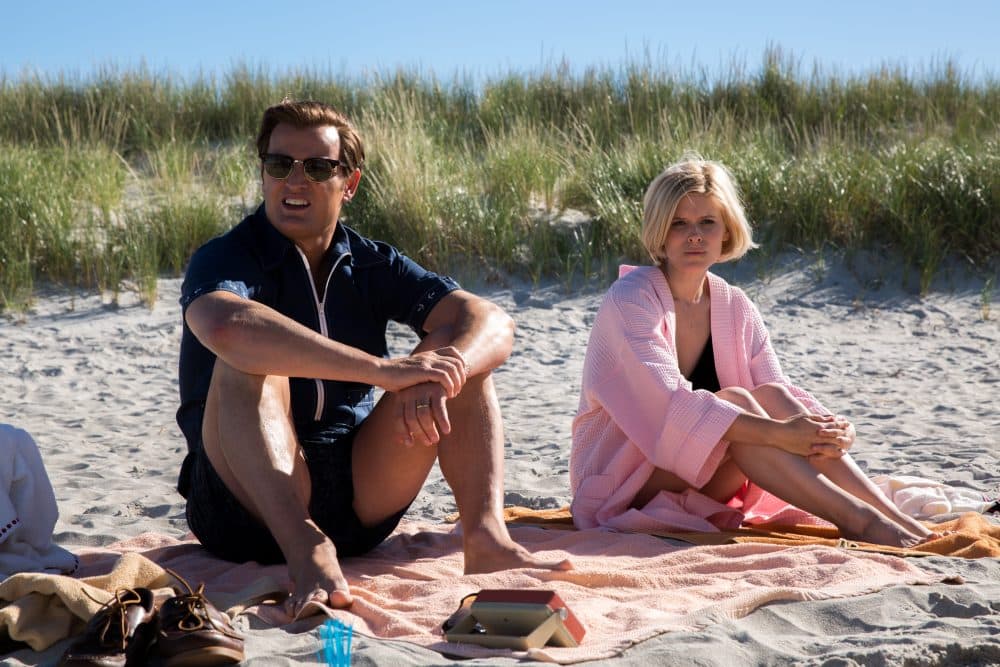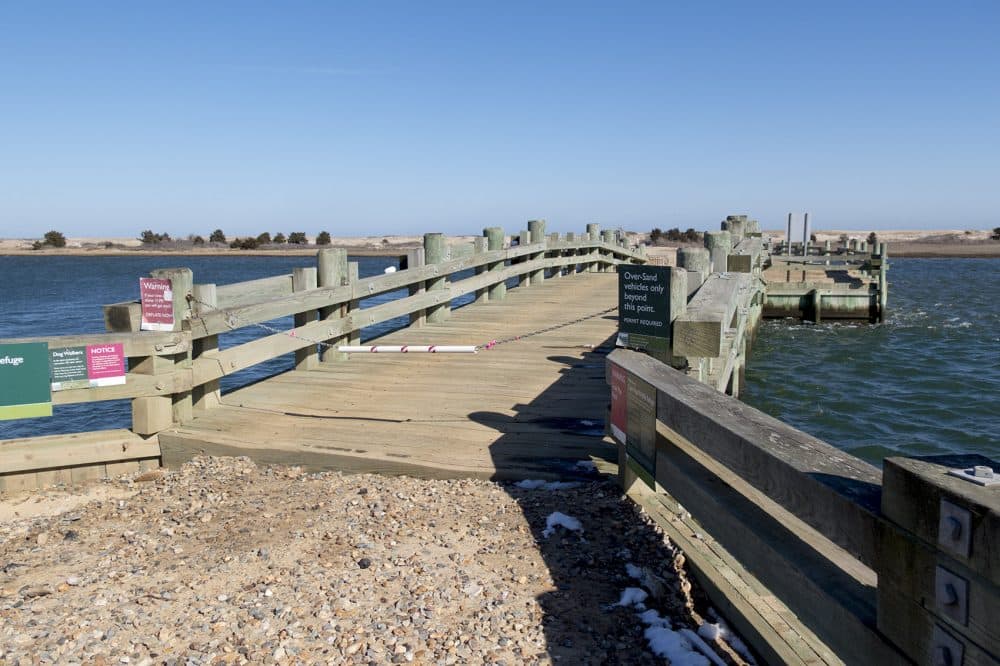Advertisement
'Chappaquiddick' Spotlights Scandal That Weighed On Ted Kennedy's Political Career
Resume
The new film "Chappaquiddick" explores the events surrounding the death of Mary Jo Kopechne, who drowned in a car driven by Ted Kennedy in July 1969.
Here & Now's Robin Young talks with Australian actor Jason Clarke, who stars as Kennedy, and John Curran, the film's director.
Interview Highlights
Clarke, on whether he was as aware of the Chappaquiddick incident as many Americans are
"Yes I was, you know, I knew of Chappaquiddick, I knew of the Kennedys. I met Ted Kennedy on a boat off Hyannis Port when I was shooting 'Brotherhood.' I had no idea of the details of this event, such as the 10 hours [the incident went unreported], such as he wore a neck brace to the funeral. And the more I went down this rabbit hole of the Kennedys, the more I just could not bring myself out of the attraction of this story."
"Ted's legacy is Ted's legacy — good and bad. And there's nothing wrong with looking at it honestly."
Jason Clarke
On his impression of Kennedy upon meeting him
"He was Ted Kennedy. He was a man who, you know, I agree with his politics: education, health care, civil rights. He was a titan of America in the 20th century. He was impressive."
On how he wanted to portray Kennedy in that moment
"As a real person, a human being. He's a 34-year-old, 35-year-old man who was fathering 14 children — 12 of Bobby's, two of Jack's and one of his own — who was possibly depressed, maybe clinically depressed, who was a year on from the murder of his second brother [to have been] murdered. It was very important to make that person real, to give the audience an intimate look at this man who we see from such a distance, and to take you down with him on his journey of his moral soul."
On choosing which story to tell about the incident amid conflicting ones
John Curran: "We always tried to stay as close to the facts as possible — from the inquest, from anecdotal evidence, etc. But, you know, there's things that we don't know, and only two people know, and they're of course both dead. It isn't like I'm blowing the lid off the truth of Chappaquiddick, because nobody knows, you know? But I think the bigger point to the film is the reaction to this accident."
On whether there was concern about the film being seen as a definitive history
John Curran: "I don't think there's really that much of a mystery. I think it's a guy and a young woman go out, they've been drinking, there's a witness who happened to be a cop who saw them in the car, and that's probably a very good reason why they took off at such a high speed. The bridge is less than a mile from that intersection, so it's pretty obvious what happened.
"What happened afterwards, I think, you know, Jason and I have been out on that bridge late at night, and there's no ambient light. It's pitch black, and there's a strong current. I mean it's very conceivable that what happened is what Ted says happened: He tried to rescue her and he couldn't."

Clarke, on standing on the Chappaquiddick bridge
"It's haunting. It's also, the place is the edge of America, and I always had this feeling as Ted when we sat there and we just examined it, of like the minute Ted turned his face from the Atlantic Ocean towards the house, towards Washington, towards his responsibility and his justification — it would have been a very lonely, cold decision."
On Mary Jo Kopechne's portrayal by Kate Mara
John Curran: "I felt it was very important to get to the heart of who Mary Jo was. It's only a year after Bobby was killed, and by all accounts, Teddy was very depressed, and so was she. She left Washington. She couldn't deal with it."
On those questioning why the movie was made
Jason Clarke: "Ted's legacy is Ted's legacy — good and bad. And there's nothing wrong with looking at it honestly. I find it odd that that question comes up. Why wouldn't we look at this story? I find it unbelievable that this film has not been made. What a gripping story. I mean, how does journalism feel about how it was reported back on the day? This story brings up a lot of issues about the people we hold in high regard and we revere. Ted's legislative [achievements] and his politics stand as is. The question as to what kind of human being he was, whether he should've faced charges and all that, is worth debating."
This article was originally published on April 03, 2018.
This segment aired on April 3, 2018.
